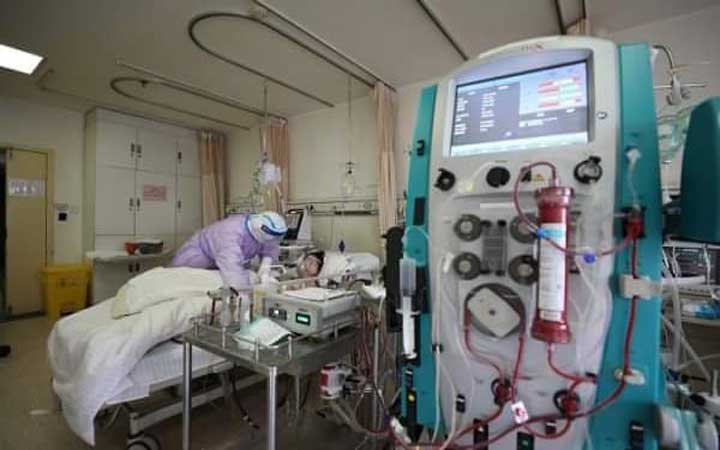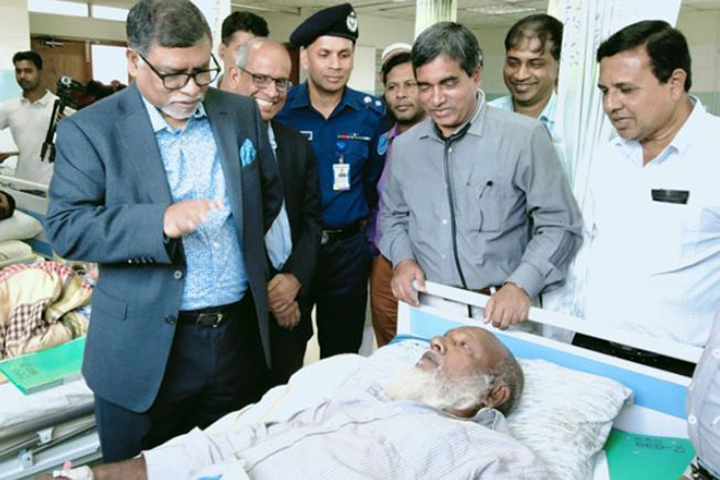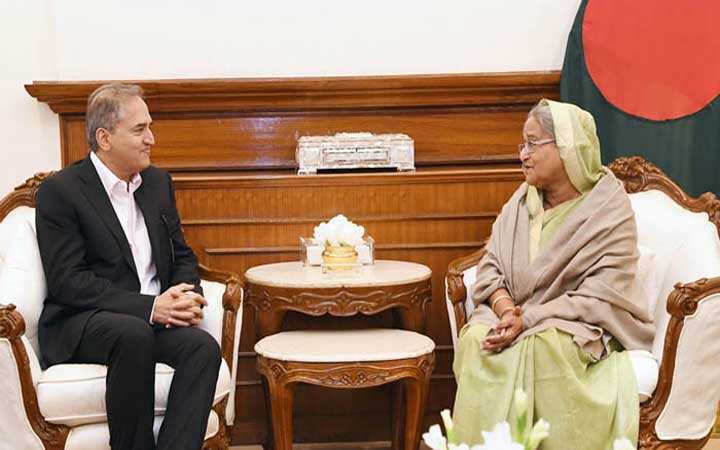Queen’s doctors ‘concerned’ for her health: palace
Fears grew on Thursday for Queen Elizabeth II after Buckingham Palace said her doctors were "concerned" for her health and recommended that she remain under medical supervision.
The 96-year-old head of state -- Britain's longest-serving monarch -- has been dogged by health problems since last October that have left her struggling to walk and stand.
The queen -- an instantly recognisable figure to billions of people across the world -- is in her Platinum Jubilee year, marking 70 years since she succeeded her father king George VI in 1952.
All her children -- heir to the throne Prince Charles, 73, Princess Anne, 72, Prince Andrew, 62, and Prince Edward, 58, were either at or heading to Balmoral, royal officials said.
On Wednesday, the queen pulled out of a planned meeting with her senior political advisors, after being told to rest.
The previous day she held audiences at her Scottish Highlands retreat, Balmoral, with outgoing prime minister Boris Johnson and appointed his successor, Liz Truss.
"Following further evaluation this morning, the queen's doctors are concerned for Her Majesty's health and have recommended she remain under medical supervision," Buckingham Palace said in a statement.
"The queen remains comfortable and at Balmoral," the palace added.
The palace statement about the queen's health is highly unusual.
"The palace does not issue bulletins on the queen's health unless it's significant," royal commentator and author Robert Hardman told the BBC.
- 'Deeply concerned' -
It comes after she has looked visibly frailer in recent months, and a succession of withdrawals from public engagements.
She has taken to walking with the help of a stick and was also seen earlier this year at the Chelsea Flower Show touring the site in a motorised buggy.
In February she was laid low by a bout of Covid, which she admitted afterwards had left her "exhausted".
Officially, the palace has said only that the queen has been suffering from "episodic mobility problems" but given no further details. She spent an unscheduled night in hospital in central London in October 2021 and was
advised to slow down.
She has pulled out of ceremonial engagements, delegating more to Charles, including the State Opening of Parliament and the Trooping the Colour military parade to mark her official birthday.
Moments before Thursday's announcement, notes were passed to Truss and senior members of her team in parliament, prompting them to leave the chamber.
Truss tweeted almost immediately afterwards: "The whole country will be deeply concerned by the news from Buckingham Palace this lunchtime," she added.
"My thoughts -- and the thoughts of people across our United Kingdom -- are with Her Majesty The Queen and her family at this time."
- Global figure -
Archbishop of Canterbury Justin Welby, the highest-ranking cleric in the Church of England that the queen heads, said the queen was in his prayers.
"May God's presence strengthen and comfort Her Majesty, her family, and those who are caring for her at Balmoral," he tweeted.
Political leaders from Britain's devolved nations in Scotland, Wales and Northern Ireland, also sent their best wishes.
Four days of public events were held in June to mark the queen's record-breaking Platinum Jubilee, but she made only two appearances to acknowledge the huge crowds in central London.
As well as the United Kingdom, the queen is also head of state in 14 Commonwealth countries around the world, including Canada, Australia and New Zealand.
She also heads the Commonwealth grouping, which comprises 56 nations and takes in more than a quarter of humanity.
For most of her subjects, she is the only monarch they have ever known, featuring on stamps, banknotes and coins, and immortalised in popular culture.
But Britons were forced to face up to the reality that her reign in her twilight years, when her husband of 73 years, Prince Philip, died in April 2021, just weeks shy of his 100th birthday.
In recent years, she has been forced to face a succession of scandals involving senior royals, including her second son Prince Andrew for links to the convicted paedophile Jeffrey Epstein.
Grandson Prince Harry and his wife, Meghan, also rocked the palace by quitting royal life, and criticising the institution, even accusing it of racism.
Source: AFP/BSS
AH
09 Sep 2022,09:13



















 Live Tv
Live Tv






